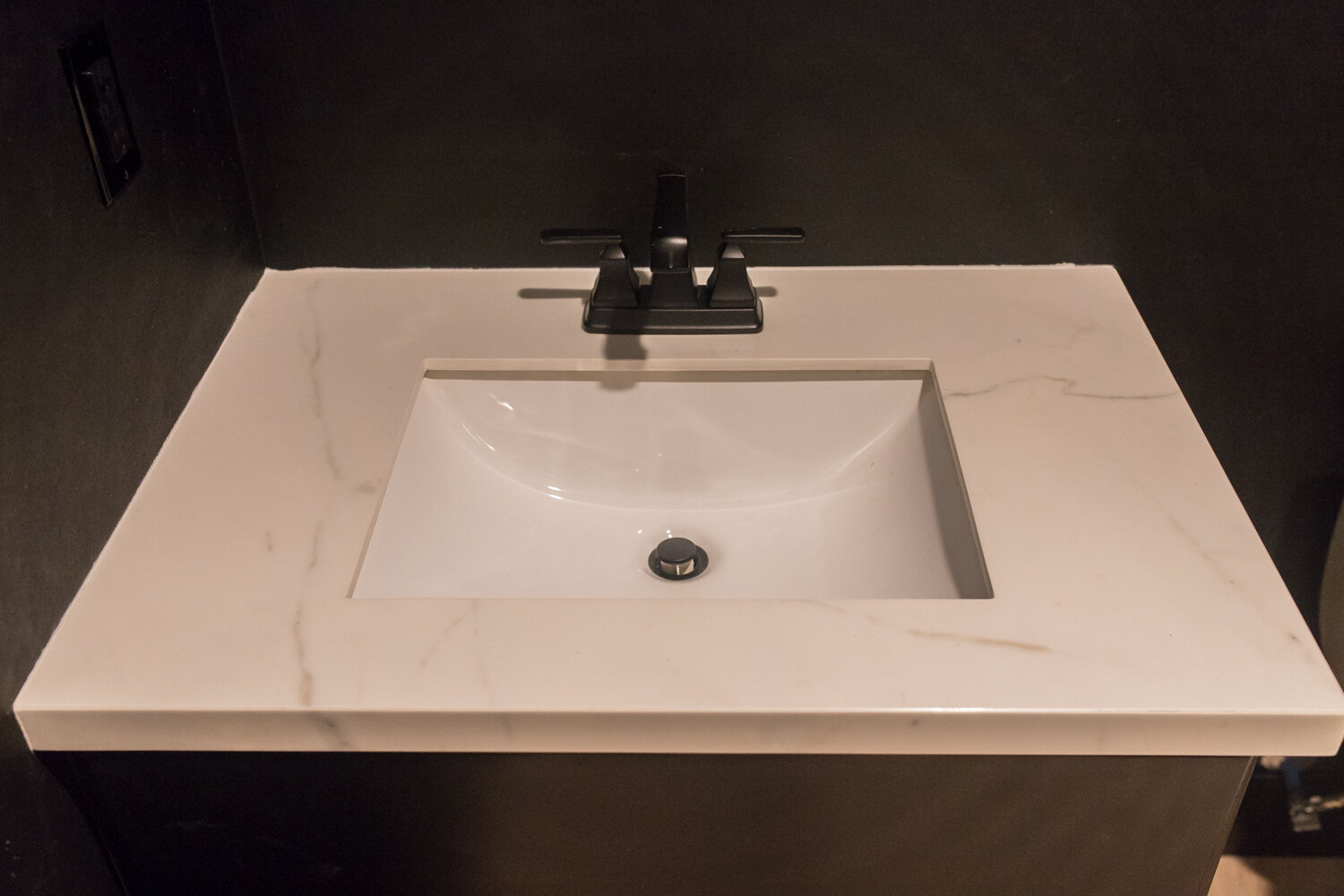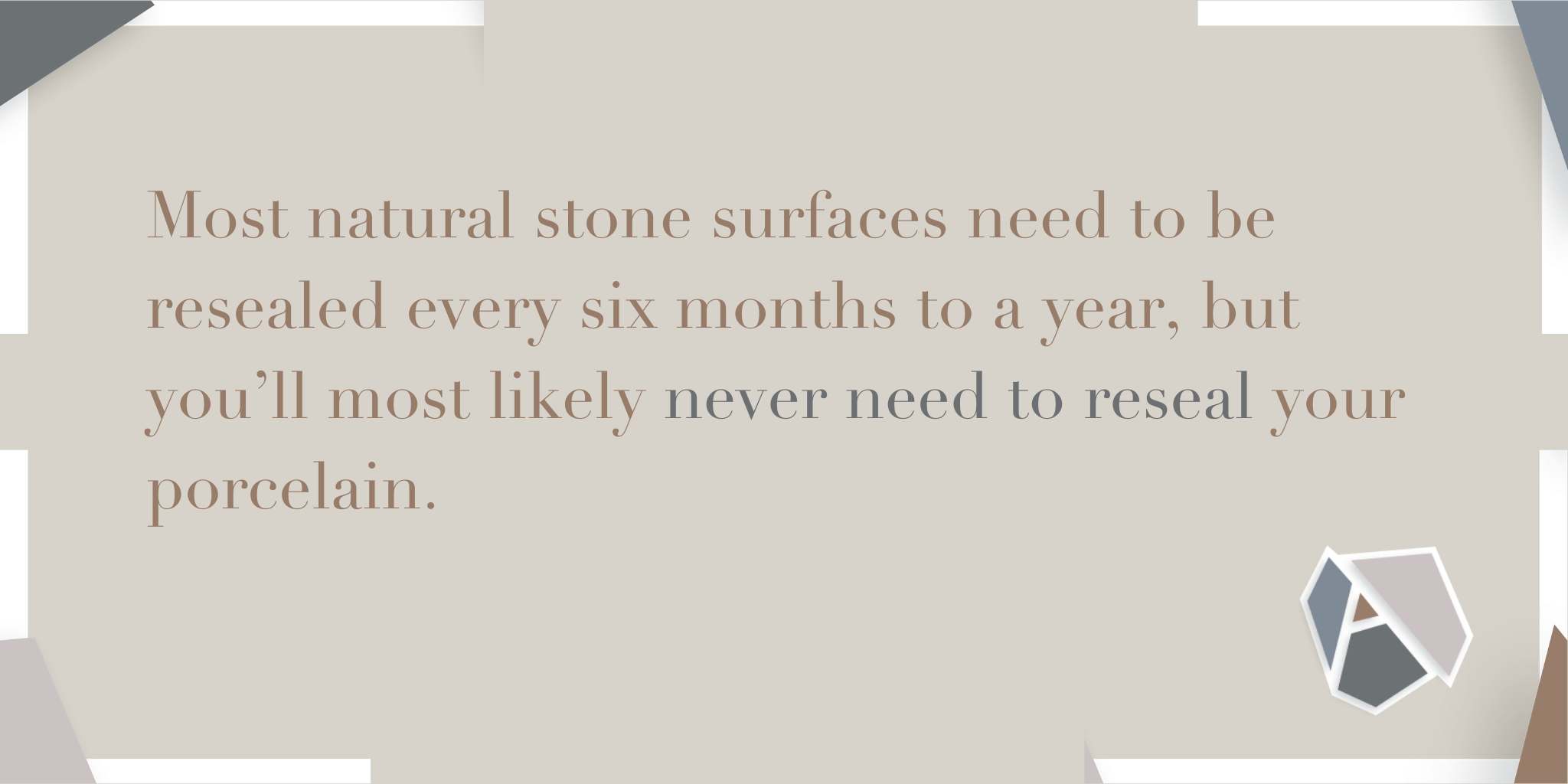Porcelain: The Next Big Thing in Countertops?
Porcelain has been popular in American bathrooms for decades, but is it the next big thing in kitchen countertops? Europeans have been using porcelain throughout their homes for years, and it seems like this durable, chic option is gaining popularity among American homeowners as well. In this article, we’ll look at why porcelain is a great option for kitchen countertops, plus some unique places you can use it around your home.



What is Porcelain?
Porcelain is a non-porous clay, called China clay, mixed with kaolinite, silica, and other minerals to give it durability. The mixture is fired in a kiln at extremely high temperatures, which makes it basically heatproof. It’s a tough material that resists scratches, stains, cracks, chips, and even discoloration and deterioration from UV light.
Since it’s manmade, porcelain can be essentially any color or design, from faux marble to a wood lookalike or concrete. Manufacturers add colors and designs with glaze on top of the surface, then bake it again to set in the design and the sealant. Typically, porcelain comes in two finishes: matte or high gloss. The combination of the dense porcelain and the baked-on finish makes the surface stain-proof. Unlike stone countertops, such as granite or marble, you’re unlikely to ever to need to reseal porcelain since the sealant is baked on.
Advantages of Porcelain Countertops
Low Maintenance
Porcelain is the ultimate low-maintenance surface. Most natural stone surfaces need to be resealed every six months to a year, but you’ll most likely never need to reseal your porcelain. That means that your surface will look as great in 10 years as it does the day you install it, with basically no upkeep.
Also, since the sealant is baked on, you can use any cleaner that you like without worrying that it’ll absorb into the stone and leave a stain. However, since it’s stain-resistant, you aren’t likely to even need harsh chemicals to keep it clean. In most cases, wiping the surface with warm soapy water and a soft cloth is all it takes to maintain your countertop. One downside is that porcelain is slightly prone to soap buildup. If you feel like your surface is dulling, just use plain hot water and a soft rag to rinse it.
Non-porous
Since porcelain is non-porous, it resists bacteria absorption. It’s a great option for families or homeowners who love to cook because it’s extremely hygienic. Not only does it resist bacteria, but you can also use the disinfectant of your choice without worrying that it’ll damage the surface. Another bonus of porcelain is that acids, like wine or tomato juice, won’t etch the surface like they can with sealed granite or marble.
Heatproof
Porcelain has an extremely high heat resistance since it’s baked in a very hot kiln, so it’s perfect for kitchen countertops or the bathroom where you may use heated hair styling tools. It’s also ideal for an outdoor kitchen countertop or around a fireplace. No matter where you use it, you won’t have to worry about harming the surface with high heat.
Although it’s heatproof and scratch resistant, we still recommend using a hot pad or trivet under pots and pans. You’ll avoid leaving hot spots on the countertop and totally eliminate the chances of the textured bottom of a pan scratching the surface.
Scratch, Chip, and Crack Resistant
Porcelain is light but dense, so it’s very strong and durable. While it is possible to crack or chip it if you’re really rough on it, it’s unlikely that you’ll damage porcelain during normal use. However, ceramic knives can scratch the surface, so we recommend always using a cutting board.
If you do end up with a crack or chip, we recommend getting in touch with us right away. Unfortunately, one downside of porcelain is that the color or design is only on the surface since it’s added in one of the final steps of production. If you do get a deep chip, you may be able to see the uncolored porcelain under the glaze. A professional can match the color or pattern so that the area is more camouflaged than most DIY solutions.
Unique Places to Use Porcelain
Porcelain is lightweight and very durable, so it’s a unique option for many places inside and outside your home. Since it’s heatproof and doesn’t absorb water, it works great as an outdoor kitchen countertop or for a custom outdoor table.
Porcelain is also a great option for vertical applications since it’s so lightweight. Glossy porcelain is a chic and pragmatic choice for shower walls because it’s very easy to wipe clean. It’s perfect for busy people who want an easy-to-maintain antibacterial shower surface that still looks high end.
One of our favorite ways to use porcelain is to frame a fireplace. With endless design options, it can match any living area décor and can turn your fireplace into a real showpiece. We think porcelain is the next big thing in surfaces because it’s beautiful and super durable. If you’re interested in talking about how porcelain might fit into your home, get in touch with one of our design experts today.





